Summer Sandbox Awardees
Summer Sandbox Grants support faculty who design and test new approaches to teaching and advising in an undergraduate summer course or project. This is an opportunity to use summer as a learning laboratory for the academic year. Support is available for faculty who wish to develop online and hybrid teaching skills, groups of faculty in a department or program who are developing new approaches for core and large-enrollment courses, and for any faculty exploring fundamentally new approaches to teaching and learning.
Summer Sandbox Grants 2025
Leveraging AI Tools for Differentiated Instruction and Enhanced Learning Autonomy in Language Education
Wen-Hua Du (Associate Professor of Teaching), Humanities and Arts
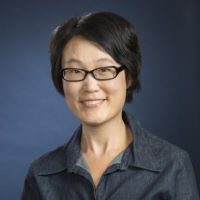
This project addresses language proficiency gaps in intermediate and advanced courses by leveraging AI tools to support differentiated instruction. It aims to evaluate AI tools, design curriculum components, and implement AI-assisted assignments in Fall 2025 Chinese courses. These efforts focus on fostering critical AI literacy and enhancing students' learning autonomy. Student feedback will guide the outcomes, advancing language learning practices and promoting the ethical integration of AI in foreign language education at WPI and beyond.
Designing Smarter: AI Integration in Architectural Engineering Education
Soroush Farzin (Assistant Professor of Teaching), Civil, Environmental, and Architectural Engineering

This proposal integrates AI-driven teaching methodologies into three architectural design courses, equipping students with industry-relevant AI tools for generative design, parametric modeling, structural analysis, and visualization. By incorporating tools like Autodesk Generative Design, Finch 3D, Grasshopper Karamba-AI, and UpCodes-AI students will engage in AI-assisted decision-making, algorithmic design and ethical considerations. The project delivers AI-enhanced course modules and hands-on prototyping, helping students develop essential skills for AI-driven architectural practice while supporting the integration of AI in design studios.
Building Community through a Collaborative Online Project-based European History Curriculum
Emily R. Gioielli (Assistant Professor of Teaching), Humanities and Arts
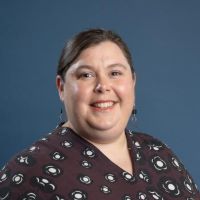
Collaborative learning stands at the core of WPI’s mission, but in asynchronous courses delivered online, the learning environment is remote and atomized, inhibiting peer-to-peer learning communities and hindering professor-student collaborations. Utilizing digital tools and artifact-based analysis, this project focuses on developing a collaborative, project-based, online modern European history curriculum to grow students’ core humanities skills; create a durable collaborative online learning community; and prepare students to learn from one another in sustained critical dialogue.
The Chemistry of Belonging: An Immersive Graphic Novel E-Book Approach to Organic Chemistry Education
Anita Mattson (Professor), CBC
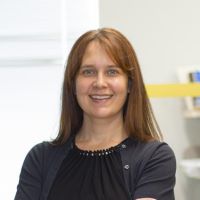
Organic chemistry is often seen as an intimidating “weed-out” course, preventing students from reaching their full potential. This project aims to transform organic chemistry education by developing an immersive graphic novel-style textbook. Through compelling storytelling, dynamic visuals, and interactive learning strategies, this resource will make complex concepts more intuitive and engaging. By reducing student anxiety and broadening accessibility, this innovative approach will support diverse learners, foster deeper understanding, and have a lasting impact on student success, ultimately redefining how organic chemistry is taught and experienced.
Faculty Learning Community for Advising Transfer Students
Jeannine Coburn (Associate Professor), BME
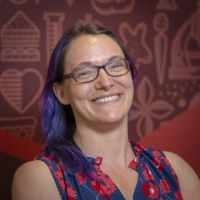
This project will be a cross-disciplinary Professional Learning Community (PLC) for Faculty and Department Advisors that support transfer students at WPI. Often, transfer students plan to complete their degree with a 2-3 year residency, completing all project work and remaining coursework in a condensed time while facing barriers that are not commonly experienced by traditional students. The PLC will be a year-long opportunity to develop tools, resources, and a support structure for transfer student advising.
Being Human in A Digital Age: Experimental Integrative HUA Course Design' for Transfer Students
Joseph Cullon (Professor of Teaching), Esther Boucher-Yip (Professor of Teaching), Scott Barton (Associate Professor), Geoffrey Pfeifer (Associate Professor)

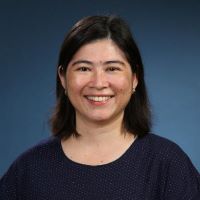

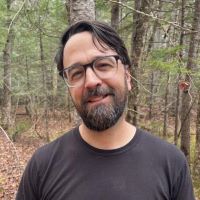
Students transferring to WPI confront the challenge of navigating the rules of WPI’s six-course Humanities and Arts Requirement. This project aims to exploit strategic opportunities to intervene in the HUA curriculum that meet the practical needs of WPI’s transfer student to finish their HUA Requirement in as efficient and timely way as possible while also expanding the worldview of transfer students, pushing them to fathom the inextricable connections between the technological and the humane, the system and the self.
Lab Design for Ordinary Differential Equations
Bill Sanguinet (Assistant Teaching Professor), Mathematical Science, Physics & Electrical and Computer Engineering
The Math Department is seeking this grant to support the modernization of the MA2051 Ordinary Differential Equations course. Several computer labs (5 total) will be developed using the Python programming language and Geogebra. The primary goal is to teach students how to put into practice the theory that is being taught in the course while establishing a foundation in mathematical software essential to success in future endeavors both inside and outside of applied mathematics.
Teaching Students to Develop Artificial Intelligence-based Solutions through In-Person and Virtual Laboratories
Pradeep Radhakrishnan (Associate Professor of Teaching), MME
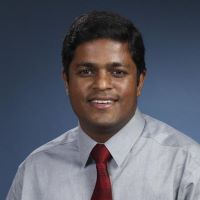
The project aims to develop in-person and virtual laboratories related to artificial intelligence (AI) for engineering majors at the undergraduate level. These laboratories will introduce different techniques such as rule-based systems, optimization algorithms, and machine learning-based model development along with ways to utilize open-source and commercial large language models (LLMs). This will allow our students to be AI-ready, utilize these tools and develop innovative solutions.
Development and Deployment of a Multi-Layered Assessment Approach to Revisit the General Chemistry Lecture and Laboratory Sequence at WPI (Assistant Professor of Teaching), CBC

In recent years, the Chemistry and Biochemistry Department at WPI has redesigned and enacted alternative teaching approaches to improve learning outcomes in the general chemistry lecture and laboratory sequence. An example of these approaches is the implementation of project-based learning in the CH10XX laboratory sequence. However, the learning outcomes from those alternative teaching approaches are yet to be documented, analyzed, and assessed to lead to enhancing chemistry education at WPI. This proposal aims to develop and deploy a multi-layered assessment approach to measure learning outcomes across the general chemistry lecture and laboratory sequence. The multilayered assessment approach will involve collecting and analyzing data from student course evaluations, classroom observations, teaching portfolios, teacher and student interviews, surveys, and student test scores/grades. The development and deployment of the multi-layered assessment approach will contribute to encourage and guide refining our current teaching approaches and designing novel strategies to extend desired learning outcomes.
Prior Year Summer Sandbox Grants
Summer Sandbox Grants 2024
Post-IQP Academic Publishing
John-Michael Davis, Assistant Professor of Teaching, The Global School

The course will be open to students who completed their IQPs in Puerto Rico in C-term 2024. In E term 2024, I plan to work with 2-3 teams to repackage their IQP report into a journal article. The course will be a 1/6 credit course. Students will deepen their knowledge of their IQP research and its relevance both within Puerto Rico and more broadly, further develop their academic writing skills, learn firsthand the process of academic publishing, and (ideally) co-author a peer-reviewed article offering a major achievement as an undergraduate student. I plan to balance offering teaching opportunities with modeling strong academic writing. The course will involve regular Zoom meetings with teams that will follow Wendy Belcher's book "Writing Your Journal Article in 12 Weeks."
Afro and Indigenous Voices in Latin America
Lina Munoz-Marquez, Assistant Teaching Professor, Humanities & Arts
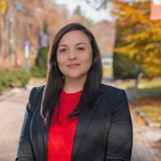
I propose to develop a Spanish Special Topics Course that explores the narratives and experiences of indigenous and Afro-Latin American activists, artists, writers, filmmakers, and singers. Starting with a critical analysis of racial, gender, and class inequalities in Latin America, students will be exposed to cultural and artistic products that present social justice responses. Through this approach, students will be able to engage at a deeper Spanish level with their study of the diversity of cultures and identities in Latin America. This project involves designing modules, lesson plans, interactive projects, and activities that will be made available to other professors and will benefit students who are completing the HUA Requirement in Spanish, and who are preparing to complete study abroad programs or to work at WPI’s Project Centers in Latin America.
Social and Political Philosophy
Geoffrey Pfeifer, Associate Professor of Teaching, The Global School
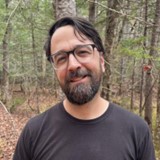
This will be an upper-level course to my intro to the course where I use Perusall the social annotation reading app to help build community in addition to offering short lecture videos and a once-a-week live drop-in session for students to discuss course material in person. I plan on doing something similar in the upper-level PY 2712 class and I also want to re-imagine some of my content for an asynchronous format. I am thinking about adding different forms of media to help with philosophical content and new video assignments to help students connect with the material, and each other, in the asynchronous space. Much of what I do in this course will differ from what I do in the introductory course as it is a higher level.
Topics in Modern Physics: A Roadmap of Women Contributions
Izabela Stroe Associate Professor of Teaching, Physics
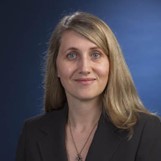
In this project, I will create a Roadmap of Women Contributions to discoveries and technologies related to topics taught in the Modern Physics course PH 1130. Further, I will redesign the course structure to best incorporate and align these contributions with the required learning course outcomes. Creating the roadmap and incorporating it in this course and other courses is one important step to acknowledge women contributions in science, provide role models to women students, and ultimately help bridge the gap of women’s participation in these fields.
NeuroPhysics of Yoga
Snehalata Kadam Assistant Teaching Professor, Physics, (PI) Jagan Srinivasan Associate Professor, Biology & Biotechnology

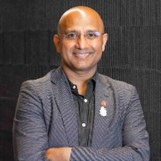
Our major goal is to create novel pedagogical approaches for learning concepts in STEM-oriented subjects and provide an atmosphere for acceptance and equity for all students. This endeavor will help students adopt exercising regularly, develop problem-solving skills; and learn to manage emotions. The holistic practice of yoga will allow individuals to appreciate the biomechanics of the human body by increasing strength, flexibility, balance, and awareness of physical sensations within the body and emotions. Increased awareness of the body and emotions improves mental well-being and can also impact decision-making by creating some between registering a stimulus and engaging in a behavioral response. We are collaborating with the Center for Wellbeing at WPI to assess the impact of the program on well-being by administering the Well-being Improvement Survey in Higher Education (WISHES) to participants and developing wellness courses related to these activities.
Hey, AI! Is That a Scarlet Tanager in My Yard?
Marja Bakermans, Associate Teaching Professor, The Global School
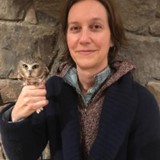
I aim to create a new online course that redesigns an introductory biology course, making it accessible, engaging, and building community. This course will be offered in the summer in an online format, integrating a component of field biology into a course to connect students to outdoor ecologies and ecosystems. The course will embed AI-informed nature apps in the course structure to engage students in the natural world. It will integrate an online data analysis software platform that promotes exploration of the data in science in a user-friendly, drag-and-drop platform. The course will promote the exploration of ecosystems and nature while building a welcoming community. Students all over the globe will be able to participate in this online class and encouraged to integrate local cultures and values around nature, biodiversity, and conservation and share this with their classmates. We will take lessons from using nature-based apps and the online data analysis platform in this setting and consider how to incorporate similar elements into the in-person version of this course.
AI for Agency and Identity
Thomas Patrick Noviello, Instructor, Physics

Efforts have been made within the physics community to ensure that students have agency in the classroom, which has been accomplished through the adoption of inquiry-based activities and active learning philosophies. These settings offer students a glimpse into what professionals do and how they think, thus forming a preliminary sense of professional identity. However, agency and identity can fall short when homework problems are assigned through a textbook, which are often contrived problems that are not tailored to student needs and/or interests. It is proposed that students use AI in the form of ChatGPT 4 to generate their own problem sets based on their interests, analyze the output problems, thoroughly compare their work to AI-generated solutions, and write targeted reflection pieces to document skills obtained, areas of improvement, and to create a plan for subsequent assignments.
GPThermo: An In-House GenAI Tutor for Thermodynamics
Alireza Ebadi, Assistant Professor of Teaching, Mechanical & Materials Engineering

As generative AI becomes more widespread, educators should consider how to apply it responsibly to education. Current commercial systems sometimes struggle with technical prompts. However, with careful in-house training focused on course materials, AI could provide students with rapid feedback to reinforce key concepts. This project aims to train a GPT model focused on thermodynamics using in-house resources, such as ES 3001 lecture notes and video transcripts. The model shall serve as a baseline to create similar models for other courses.
Beyond Boundaries: Expanding Access to Chemistry Education Through Virtual Reality Technologies in First-Year Labs
Raúl Orduña Picón, Assistant Teaching Professor, Chemistry & Biochemistry (PI), Robert Dempski, Professor, Chemistry & Biochemistry
![]()

To address first-year students’ learning challenges in chemistry laboratories, this proposal aims to design, implement, and assess new extended reality tools to foster students’ opportunities to learn when engaging in project-based learning in the CH1010 laboratory at WPI. This pedagogical tool's development and assessment will contribute to the recent redesign of the CH1010 laboratory by offering an additional mechanism to teach laboratory safety, basic chemistry skills, and the use of instruments/glassware.
AI as a Cognitive Mentor in Troubleshooting
Ahmet Can Sabuncu (PI), Assistant Professor of Teaching Mechanical & Materials Engineering
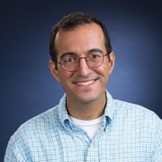
The goal of this project is to experiment the utilization of generative Artificial Intelligence to help students master their troubleshooting skills. This is a pilot project in which we would like to understand the potential of AI as a cognitive assistant to students. We explore AI platforms such as OpenAI’s ChatGPT and Microsoft Copilot. We look for options to train language models using our laboratory handouts and frequently asked questions we collected from students. Finally, we model the AI prompts so that it provides meaningful support to students as they excel in their troubleshooting skills.
Summer Sandbox Grants 2023
Esther Boucher-Yip (HUA) A Student Toolkit: How to Read Art
Co-PI Michelle Borowski
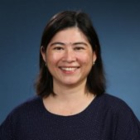
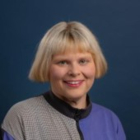
This project is a collaborative effort by two HUA faculty from different disciplines. We plan to develop a toolkit that helps students connect art and culture. Faculty advisors and students in the summer HUA project center programs can use these materials to acquire knowledge needed to reflect critically and analytically about art and culture. The toolkit is designed for students with no or limited background in art and art history to help them develop an appreciation for artistic and cultural knowledge of people, culture, and context.
Alireza Ebadi (MME) March CADness: An annual Computer-aided Design competition

I propose creating an annual tournament using a bracket system, where students who have learned computer-aided design (CAD) can compete against their peers. This tournament aims to promote class rivalry, departmental recognition, and the opportunity to gain a certificate that can be included on resumes, which I hypothesize will increase student engagement and interest in the CAD course.
Ingrid E. Matos-Nin (HUA) Women in Humanities and Arts

I'd like to explore tools to better improve the teaching of the course HU 2901: Topics in Sexuality and LGBTQ+ Studies. I will use films, books, and any other primary sources available. Particularly, I will concentrate on Women's Studies/LGBTQ+. The collected information will be posted on Canvas. This project will start a data base that can be expanded over the years for the benefit of instructors who will teach this course in the future as well as the students who will use it to learn more about the subject.
Benjamin Pollard (PH) Integrated Lecture-Lab intro Physics
Co-PI Thomas Patrick Noviello, L Dana, Kateryna Friedman


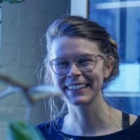
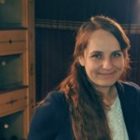
The principles of physics provide a foundation for all areas of engineering and natural sciences, making introductory physics courses high demand and high priority. Existing courses include laboratory exercises as stand-alone components, complicating meaningful connections between lab activities and lecture material. To professionalize our students’ understanding of the nature of science and epistemology, we will transition our class to integrate problem-solving and hands-on learning that meets students’ needs for deep comprehension of physics concepts and their practical applications.
Carly Thorp (MA) WPI Math Readiness Program
Co-PI Debra Boucher, Jennifer Cluett


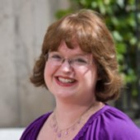
This new program will enable successful enrollment at WPI for students who would be greatcandidates but are missing the necessary prerequisite math knowledge for admissions. By creating a math pathway, prior to A-Term enrollment and taught by our own Mathematical Sciences faculty, we can provide needed remediation, build strong relationships, and open doors to successful matriculation.
Koksal Mus (ECE) ECE2029 redesign

I have been assigned to teach ECE2029 during the summer 2023 (E2 term). ECE2029 is a core course and is suggested prerequisite for ECE3829 and ECE3849. Throughout the year, it is a high-enrollment class with students from various departments and is offered 3 times a year. This year, there are 160 students registered from 3 different departments (ECE, RBE, and CS). The current curriculum of the course is designed to provide a comprehensive learning experience through daily lectures, along with 3 exams, 4 quizzes, and 5 labs, in7 weeks. Additionally, students are required to utilize 3 different software programs for specific purposes and work with a Digilent Basys 3 Artix-7 FPGA Trainer Board ($170) which can be demanding and requires additional time and effort from students. The course is designed to be challenging, but it is also designed to provide students with the opportunity to develop their skills and knowledge in hardware design.
Jim Cocola (HUA) Teaching Speculative Fiction Across Delivery Modes

This summer I'm teaching speculative fiction (yes, science fiction, but also alternate history, dystopian and utopian fiction, fantasy, horror, superhero, and supernatural fiction) in both hybrid and remote modalities, in person and/or online. Teaching speculative fiction across these delivery modes will also enable speculative thinking about teaching: its superheroes, alternate histories, present practices, and future possibilities. In the process, I aim to discern fantasies from horror stories and utopian possibilities from dystopian outcomes in and beyond the twenty-first-century classroom.
Summer Sand Box Grants 2022
Pradeep Radhakrishnan (ME) Software for Kinematics, Dynamics, and Statistics
The project aims to develop and test tools that can be used by students to verify their work in courses such as Kinematics (ME 3310 and RBE 2001), Statics (ES2501) and Dynamics (ES2503). Two software tools, PMKS+ (Planar Mechanism Kinematic Simulator Plus) for linkage analysis and GearTrain for gear analysis are being developed. These tools can be used to verify analytical equations, numerical solutions, and free body diagrams. Besides, the programs can generate CAD models to enhance student understanding.
Gizem Arslan Yunt (HUA) German for Professional Purposes
This project’s goal is to integrate career readiness into the German program at WPI by finalizing a new course in development titled “German for Professional Purposes,” as well as developing shorter modules that can be integrated into first-year German language courses. Through interactive projects and tasks in which students apply their language and intercultural competence to professional situations, the five-week course and the shorter modules will prepare students to study abroad, work and intern in German-speaking contexts.
Joseph Cullon (HUA) Jumpstarting the HUA Experience: Building Summer HUA Courses for Incoming First Year Students
Co-PI Althea Danelski, Esther Boucher-Yi, Emily Gioielli, Abigail Koo, Joshua Rohde.
While increasing numbers of incoming first year students started taking HUA summer courses during the pandemic, these courses had not been consciously designed to initiate student to college-level HUA work. This project seeks to create a coherent experience for incoming FY students by redesigning and running introductory courses to explicitly meet the academic needs of first years, initiating them into a culture of care and resilience where durable faculty-student relationships can be formed.
Buddika Peiris (MA) Designing STAT labs
Co-PI Fangfang Wang
The Math Department is seeking this grant to support the modernization of the Statistics labs for two undergraduate applied Statistics courses, specifically MA 2611: Applied Statistics I and MA 2612: Applied Statistics II to establish a foundation in statistical software essential to understand the statistical concepts practically.
Ahmet Can Sabuncu (ME) Remote Controlled Camera Assistant System
Any live or recorded experimental demonstration in teaching requires a camera system. This proposal seeks to design and validate an automated camera assistant in the Mechanical and Materials Department courses. The camera system employs multiple cameras with zoom and focus capabilities to provide varying depth of view and multiple viewpoints. The cameras are motorized along different axes. Finally, we use an automation system for remote control of cameras.
Farley Chery (CS) Studio tool for rapid creation and adoption of Diversity in animated media
Building on the theme of diversity, representation and technology, this projects goal is to finalize the development of an auto-rigging tool with advanced features not seen in commercially available character rigs. Programmers will code the methods and procedures researched throughout 2021 to create a rapid development interface, bringing students’ diverse characters to life at a level beyond what today’s industry standard.
Summer Sandbox Grants 2021
Developing an Experiment with Virtual Connectivity
Ahment Sabuncu (ME) Developing an Experiment with Virtual Connectivity

In this proposal, I aim to develop an evaporative cooler for teaching psychometrics, namely thermodynamics of atmospheric air. Evaporative coolers are widely used for air conditioning in dry and hot climates. While this setup will reside at WPI, one distinctive feature is that the setup will be virtually accessible to remote students to collect data and to control the setup.
Joshua Cuneo (CS) Open Educational Video Resources for Computer Science

This project is part of an ongoing effort to generate OER video materials for WPI computer science classes. In particular, this project will focus on CS 4731: Computer Graphics. These materials will incorporate animations and coding demonstrations, will be tailored to WPI’s 7-week curriculum, and will be narrated by WPI computer science instructors. The videos will also be broad enough in scope to be applicable outside of WPI, and they will be publicly available online for educators around the world.
Creating Interactive Scenes to Project on Zoom and Other Platforms using OBS Studio
Maqsood Mughal (ECE) Creating Scenes using OBS Studio for Streaming Virtual Classroom over Zoom and other Platforms

The idea behind this project is to improve student engagement and creating an environment that increases student participation during a virtual class. The goal is to deliver a high- performance real time video/audio capturing and mixing, creating scenes comprised of multiple sources including window captures, images, text, browser windows, multiple webcams, videos and much more. This will allow us to set-up number of scenes for a class on a given day one can switch between seamlessly via custom transitions. For example, one great scene to stream over Zoom for a coding class can be seen below: (1) The students can see the instructor through a webcam or an external camera, (2) students can see the software window where instructor is teaching how to code, and lastly, (3) instructor can monitor students' response and answers questions posted in the chat window.
Ahmet Sabuncu (ME) Leveraging History to Teach Engineering
Co-PI Maqsood Mughal

We prepare open educational resources on historical background and socioeconomic impacts of technological inventions with this project. Learning about interesting stories behind inventions could incite curiosity and develop insight in students as most incredible technical innovations originated usually in interesting ways. We believe this lacking aspect in engineering education increases student engagement and facilitates learning.
Calculus Lab Design
PI: Marcel Blais (MA) & Co-PI's Michael Johnson (MA); John Goulet (MA); Barry Posterro (MA)

The Math Department is seeking this grant to support the modernization of the calculus labs for 2 of the 4 primary WPI calculus courses, specifically MA 1023: Calculus 3 and MA 1024: Calculus 4 to establish a foundation in mathematical software essential to success in upper-level courses both in math and outside of math.
Summer Sandbox Calculus Lab Grant
Olufunmilayo (Funmi) Ayobami (BME) Virtual Internship in Biomedical Engineering
Co-PI Kristen Billiar; Solomon Mensah

The Virtual Internship in Biomedical Engineering (VIBE) program aims to increase access to minoritized students, through an 8-week team-based, virtual experience targeted to underrepresented and first-generation students. Culminating in a BME design deliverable focused on global health, students will gain hands-on experience with the biomedical design process, learn professional development skills, and engage with current biomedical faculty and professionals. The program will also provide a platform through which we will examine the experiences of underrepresented students with remote/hybrid learning.
Summer Sandbox Grant Video Report
Esther Boucher-Yip (HUA) Grammar-flip for the ESL writing classroom
Grammar Flip for the ESL Writing Classroom
Co-PI Althea Danielski

Using the flipped classroom as an instructional strategy, this project involves designing and building interactive online grammar modules for multilingual writers. These modules would be used to supplement the teaching of writing and improve students’ mastery of grammar and writing concepts. These self-paced activities would also serve as learning resources for student writers.
Farley Chery (CS) Novel approaches to 3D modeling and World heritage Aesthetics

Novel approaches for 3D modeling, applies traditional art concepts to digital sculpting. Traditional principles such as rhythm, blocking out and iterative evaluation, the course introduces speed sketching as integral to the process. Focusing on translating drawing principles into applicable methodologies for 3D, the pedagogy seeks to simplify learning 3D software, concentrating on the application of inclusive aesthetic across multiple projects. Student will be given historical context to style modern styles, to develop anti-racist aesthetics in character design.